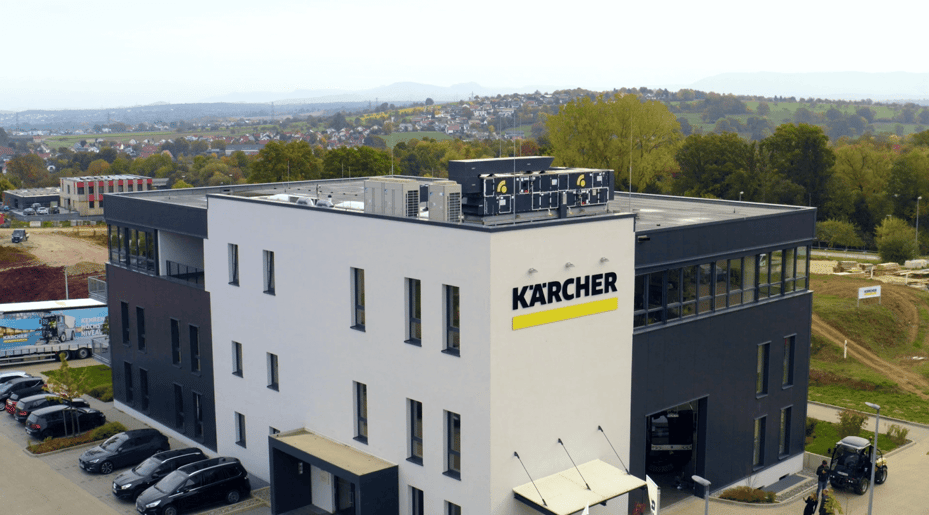Too many digital solutions and business models are still viewed as voluntary efforts whose implementation demands time, money and organization. However, the conversion to digital solutions does not always imply more work. Where machine manufacturing and innovation collide, processes are rethought in a new, digital and efficient way: Kärcher Municipal GmbH has transformed its after sales pricing by implementing a software that conducts automated market research.
Contents
01 Optimizing After-Sales for Future Success
02 Total Market Intelligence Enables Pricing in Line with the Market
03 Proactive Pricing Driven by Extensive Market Insight
04 MARKT-PILOT Compiles Data for Four-Digit Figure of Spare Parts
05 Support Exceeds Market Data Collection
Optimizing After-Sales for Future Success
Particularly in the machine manufacturing industry, the after sales sector is crucial for the success of the company and for generating sales. On average, the after sales division produces 50 to 60% of total sales and 25% of margins. The constant demand for spare parts and after-sales services serves as a stabilizing pillar for the entire company, among other factors.
However, a lack of information about price and delivery time changes within the market jeopardizes the long-term competitiveness of companies. What they need now is to take immediate action and rethink their after sales approach. The logical conclusion? To strengthen their service operations using digital tools for the future.
Total Market Intelligence Enables Pricing in Line with the Market
"Until now, we have pursued a bottom-up pricing strategy, i.e. we have purchased a part and tested the price on the market with the necessary markups," explains Jochen Schneider, Group Leader of Service and Spare Parts Management at Kärcher Municipal GmbH. Kärcher is far from being the only company to do this. On average, only 4.1 percent of all parts are priced at the market level. Without the latest market data, most parts are priced either too low or too high. Thus, due to the lack of market insight, sales and profit margins are forfeited. Experience has indicated that additional revenue can be generated for around 73% of spare parts where they are priced in line with the market.
For companies in the machine and equipment manufacturing sector, such as Kärcher Municipal GmbH, a high proportion of spare parts are in the gray market, whose origin and quality cannot be ensured, further complicating adequate pricing. The true challenge lies in pricing original parts or commercial high-quality parts attractively and competitively. To seize market opportunities and meet customer demands, tracking and understanding the developments occurring in the market is essential - a requirement that cannot be met manually.
Proactive Pricing Driven by Extensive Market Insight
Kärcher Municipal GmbH, specializing in municipal technology, is part of the world market leaders for cleaning technology, Alfred Kärcher SE und Co. KG. Without a full understanding of the market and knowledge of current lead times and prices, price adjustments become solely reactive. This approach leaves the company with passive room for action. "In today's environment, it is important to know market prices, especially as they fluctuate significantly," Schneider adds.
With MARKT-PILOT's AI-powered software, Kärcher develops a proactive pricing strategy based on current market data. "Only with market intelligence can we adjust to the market and adjust the pricing accordingly to keep customer satisfaction on the highest level."
MARKT-PILOT Compiles Data for Four-Digit Figure of Spare Parts
MARKT-PILOT has uncovered both price optimization and market share opportunities in the data collection for Kärcher and can back the analysis on more than a million data points in total for all spare parts, often several thousand per part. The data maps current market dynamics; they provide the foundation for a market-based pricing approach and optimizations. Intelligence on current prices and delivery times on the market can be obtained for every spare part within the software.
Support Exceeds Market Data Collection
The first potentials have already been implemented and enhanced immediately after the collaboration began in 2022. Automated market price research leads to the analysis of opportunities. Next is the collective definition of price rules and recommended courses of action, which are supplemented and validated with market data. This exhaustive market intelligence solves the central issue of missing market insight within after sales by providing the data-driven base for a pricing strategy in line with the market.
"The next step in 2023 is the rollout of our market-based pricing strategy. The cooperation with MARKT-PILOT does not end with the alignment of prices but continues as we also receive support in numerous other areas outside of price assessment," commends Jochen Schneider.
For Kärcher, the elicitation of data has focused on the DACH market. Future data collection can be expanded to other areas of Kärcher’s business, sales markets across the globe, or include a focused data collection and closer monitoring for selected parts.
SERVICETODAY is a trade magazine covering management, organization and practice in service. Access the magazine here.
